Brexit
So an extension (or flextension) to article 50 has been granted, no-one has died in a ditch and a general election has been called for 12th December. So now what? It is all up to the electorate.
And 10 of the 21 Tory rebels have been reinstated and can stand as Conservative candidates in the election.
Research
New PhDs: BEIS and CDMS have announced investment in new PhDs and researchers as part of a £370 million pledge to transform healthcare, improve mental health diagnosis and build more sustainable transport. Government and private investment means 2,700 new PhD places split between biosciences and AI will be created.
£200 million will fund 1,000 new PhD places over the next 5 years to study AI which they suggest could help diagnose life threatening diseases like cancer earlier and make industries, including aviation and automotive, more sustainable. The students will work with businesses including AstraZeneca, Google, Rolls-Royce and NHS Trusts.
£170 million will fund 1,700 places to study PhDs in biosciences. These projects are intended to help to tackle issues such as feeding the world’s growing population, developing renewable, low-carbon sources of energy, and helping people stay healthier for longer.
- PM Boris Johnson said: “The UK has educated, trained and developed some of the best scientists in the world – and we must continue to lead the world in AI and technology with our incredible talent and innovative breakthroughs. That’s why we’re investing millions of pounds to create hundreds of new AI and bioscience PhDs, so new research and development can thrive here in the UK and solve the biggest challenges that face us – from climate change to better healthcare.”
- Digital Minister Matt Warman said: “The UK has a long-standing reputation for innovation. We are the birthplace of artificial intelligence and home to technology pioneers such as Alan Turing and Ada Lovelace. We are determined to see this continue. “Today we are announcing a bumper investment in skills training to strengthen our workforce and attract, nurture and retain the best talent so we can lead the world in research and development. AI is already being used to improve lives by helping detect fraud quicker and diagnose diseases more accurately. With the brightest minds at the helm we will be able to explore this cutting-edge technology further.”
Universities and Science Minister Chris Skidmore also confirmed the first 5 AI Turing Fellowships. The projects include the impact of digital technologies on mental health and building a sustainable aviation industry. (Link – scroll to bottom to view details on the projects and 5 Fellows from Cambridge, Exeter, Oxford, Warwick and Manchester.) The Minister also called for further top, international academic talent to join these researchers, with £37.5 million in further funding available.
Furthermore,
- “The government is investing £13 million in innovative Postgraduate programmes, so more people can develop fruitful careers in AI. The new AI conversion courses will allow 2,500 more people to study AI from backgrounds other than science or maths at undergraduate level. This also includes 1,000 new scholarships for people from underrepresented backgrounds, including women, ethnic minorities and low-income families.
- Leading technology companies like Accenture, DeepMind, QuantumBlack and Amplyfi, are already sponsoring AI Masters students. The new courses will help build-up a highly skilled workforce in the UK and provide new opportunities for industry and universities to collaborate, ensuring new innovations are transforming industries”
[More detail on the sponsorship of the Industrial AI Masters is at the bottom of this link.]
Ministerial Questions
Select Committees regularly quiz Ministers on their departmental business. This week Chris Skidmore, Universities Minister. was questioned. Here are the key excerpts:
Carol Monaghan MP highlighted the Royal Society report (published last week) which suggested the number of applications to Horizon 2020 had dropped by 40%.
Skidmore responded that said the baseline by which this figure was compared to, was debatable, saying that whilst there was a significant reduction, the UK still gained substantially more grants than the next three countries (Spain, France and Italy) on the list.
Vicky Ford MP asked if associate membership of Horizon Europe was still the government’s preferred option post-Brexit.
Skidmore said that whilst the government (Treasury) formally wanted to assess the value for money case when the project appeared (which he said would be some time next year), his personal view was that Horizon Europe was the future of collaboration for British science. He also disagreed with the Chair’s comments that others in government were less enthusiastic about Horizon Europe collaboration than he was and stated that, in particular, the prime minister was supportive. Although he went on to state, it would be prudent to prepare for a situation where the UK was not part of Horizon Europe. In response to a further question (the target date as to when certainty on Horizon Europe would be reached) Skidmore said it depended on the European Parliament agreeing the overall financial budgets, which could happen as late as Q2 of 2020.
The Minister was asked when the Smith Review on future frameworks for international research collaboration would be published, and how quickly findings could be implemented. Skidmore said he was still discussing final timings for publication but hoped it would be published within the next four weeks. He explained that while it had been submitted in August as it has potentially significant spending implications there was a need to attach it to a budgetary process. He continued that a working group was attempting to ensure all recommendations were possible, including alternatives even if associate membership of Horizon Europe isn’t achieved.
You may remember that when Boris Johnson appointed his brother Jo to the Universities Minister post he was permitted to attend Cabinet. However, this attendance was passed to another Minister when Chris Skidmore took over. The Chair asked Skidmore if he felt the lack of a Cabinet position was downgrading his position. Skidmore diplomatically responded that whilst he would like to attend Cabinet, he noted the prime minister and Dominic Cummings were both highly supportive of science in government.
Stephen Metcalfe MP asked why the Queen’s Speech had suggested an ‘ARPA-style’ funding mechanism, at the expense of UKRI. Skidmore replied that there was still going to be a significant uplift in the science budget, on which UKRI would be the main beneficiary. However that there were also a number of bodies outside of the UKRI model, which he described as a catalyst’ and ‘engine of disruption’ focused on blue-sky research. He added that an ARPA-style model would be a significant addition to the overall funding landscape and that given its focus it would have to sit outside UKRI, to distinguish itself from traditional grant-led application processes. How much money it would have and when it would be established, were all to be decided and the Minister stated there would be a full sectoral consultation before decisions were made around a new ARPA body.
On Tier 1 fast-track visas – the system is in design and any scheme would be implemented in Jan 2021 within the context of the wider points-based system. Furthermore it would be multi-disciplinary e.g. social science as well as STEM. He stated he was not aware of any Government plans to restrict the scheme to non-STEM subjects.
Lastly, on longer degrees which would outstay the three-year temporary leave to remain visa and require a move to a tier 4 visa mid-course the Minister confirmed he had personally written to the Home Secretary to highlight this issue, which may put off international students. However, he has yet to receive a reply from the Home Secretary.
Erasmus – work on a UK-wide scheme has begun, but this would focus on UK students going out rather than EU students coming in (which would have to be determined bilaterally).
An MP raised that the Government’s target to increase research and development spending to 2.4% was not backed up by a firm plan to achieve this. Skidmore responded that the government was working towards a long-term funding plan for science and the pathway to 2.4% would be informed by the Smith Review and UKRI reports. When questioned when firm plans would be available, Skidmore said this was a “live topic” and said BEIS was working with Treasury to develop a funding envelope, with the goal of producing a pathway to 2.4% by “this autumn“.
The questions also covered data-sharing post Brexit (e.g. withdrawal from GDPR) and commenting on the new Aryton Fund Skidmore stated it would cover clean tech and business strategies for climate mitigation in developing countries (and that it was new money on top of the existing budget).
Tuition fees – Chair, Norman Lamb MP, asked if there were any plans to cut HE tuition fees (following Augar’s report) with Universities concerned about reductions to research funding if there is a fee cut. Skidmore replied that the government was still considering the review, and decisions would only be taken when the next Spending Review took place. Adding that if there was any fee reduction, he would strongly make the case that a “way to compensate for that” would have to be found.
Graduate Premium
New research from the Higher Education Statistics Agency and Warwick University shows a reduction in the ‘graduate premium’. The project analysed how the financial return to a degree has changed across two decades in which there has been a large expansion in higher education participation. The research found that graduates born in 1990 earned 11% more than non-graduates at age 26, compared to the 19% graduate premium enjoyed by graduates born in 1970. The research examined the hourly pay and found the impact was most significant on those born after 1987.
Follow up research is planned to examine cohorts born after 1990 to determine whether the reduction is a short-term dip or the beginning of a more general decline. They also plan to continue the study examining earnings as graduates progress through their careers. This is because graduates tend to grow their earning potential more sharply over time compared to non-graduates.
The research partnership also intends to examine financial return by class of degree awarded following the grade inflation debate in future work.
This research is a statistical study and when you read the full report it is unclear if national factors have been fully accounted for despite the carefully controlled analysis. First, there is the impact of the recessions on students graduating within the selected period. Previous national research suggests that graduating in times of recession may permanently damage an individual’s earning prospects. Secondly, there is no mention of the current context of intergenerational fairness – that the younger generations will not have it as ‘easy’ or ‘good’ as older generations in terms of housing and job security. There is also the potential, given the Government’s agenda to get more people into or returning to work and the recent benefits reforms which have led to reduced employment, that more women are entering the workplace (with women receiving 9-12% less in the pay gap compared to men). Plus this finding is set within a national context of stalling social mobility and increased levels in the number of children in poverty. Alongside this more disadvantaged students are accessing HE, with findings that while HE helps they do still have an earnings gap compared to their more advantaged peers on graduation.
While these are current issues, and more recent than the cohorts the study examines, the social inequalities leading to these current topics were brewing (just less prominent) in the years studied. For example, there were more graduates from less disadvantaged backgrounds with greater social capital and class earning potential than in more recent years. A careful read of the full study is important before drawing conclusions solely based on HE expansion, particularly given the Government’s agenda on oversupply of graduates doing non-graduate level roles and the financial investment an individual makes to study at degree level now.
On the study Tej Nathwani, econometrician at HESA stated:
- “Whilst the benefits of a degree are not solely financial, higher education remains a significant investment decision for young people. Changes in fees and funding have resulted in increased reliance on student loans, which are now treated differently in public sector finances. Consequently, graduate earnings continue to be an important area of research in higher education. This study adds to the available information about the financial benefits that individual students can expect from a degree. We hope to explore this area further in forthcoming years, as new data is released into the public domain.”
Hate, harassment and misconduct
OfS Chief Exec Nicola Dandridge has blogged about the devastating impact that harassment, hate crime, and sexual misconduct can have on students, and the OfS’s role in driving improved prevention and support. The blog covers the history from the 2010 NUS report to the sector’s work in this field (UUK’s taskforce and Changing the Culture report) concluding that while progress has been made more needs to be done to achieve the necessary culture change. Nicola sees the OfS role as galvanising change – by raising the profile of this issue, targeting funding to address it and sharing effective practice across the sector (alongside intervening if HE provisions are likely to breach registration). The blog goes on to highlight the £10 million student safeguarding catalyst fund which has spawned 119 projects (reports here) focussed on sexual harassment, online harassment, hate crime (including religious hate crime).
The OfS blog was in response to the Equality and Human Rights Commission’s (EHRC) report following their inquiry into racial harassment in HE. The Commission states:
- Our inquiry report Tackling racial harassment: universities challengedhas revealed that with racial harassment occurring at an alarmingly high rate across British universities, many Higher Education Institutions (HEIs) are not only unaware of the scale of the issue but are overconfident in their ability to handle it.
- The inquiry found that 24% of ethnic minority students have experienced racial harassment on campus.
- Universities are over confident that individuals will report harassment, with 43% of universities believing that every incident of racial harassment against students was reported, and 56% believing that all incidents against staff were reported. However, two thirds of students who responded to our survey and had experienced racial harassment said that they had not reported the incident to their university. Less than half of all staff who responded to our call for evidence because they had experienced racial harassment, said that they had reported it to their university. Students and staff suggested that they did not come forward about their experiences because they had no confidence that the incident would be addressed. Others said that fear of reprisals also played a part, as two thirds of staff said that better protection from personal repercussions would have made it easier for them to bring a complaint.
- Despite universities being keen to encourage international students to choose their courses, the research unearthed a strong theme of international students feeling unwelcome, isolated and vulnerable. Some even described feeling like commodities and only wanted for the fees that they bring. Half of the international students who responded to our call for evidence because they had experienced racial harassment, said that they had been made to feel excluded, over half said they had experienced racial micro aggressions, and 44% said they had experienced racist abuse, but 77% of respondents did not report it to the university.
The report notes that 8% of student experiencing racial harassment felt suicidal, and 1 in 20 dropped out because of the harassment, with 3 in 20 staff members leaving their jobs due to harassment.
The report recommends:
- mandatory duty on employers: the UK Government must reinstate third party harassment protections and introduce a mandatory duty on employers to increase protections for staff from harassment
- adequate powers for regulators: governments across Britain should ensure the sector regulator and funding councils have adequate powers and that these are used to hold universities to account on their performance to prevent and tackle harassment
- effective complaints procedures: higher education providers must enable students and staff to report harassment and ensure their complaints procedures are fit for purpose and offer effective redress
- senior-level action on inclusive cultures: senior leaders should take steps to embed an inclusive culture where staff and students feel confident and supported when making complaints.
The report has led to several MPs asking parliamentary questions on abuse this week (both of below are due for answer after this policy update is issued – the links provided will show the response once it has been published).
Q – Mr Jim Cunningham: To ask the Secretary of State for Education, what steps the Minister is taking to ensure that universities investigate all complaints made by students and staff about racism at universities.
Q – Steve McCabe: To ask the Secretary of State for Education, what steps the Government is taking to protect university staff from racial abuse.
Q – Paul Farrelly: To ask the Secretary of State for Education, what assessment he has made of the implications for his policies of the Equality and Human Rights Commission’s report entitled, Tackling harassment: universities challenged; and what steps he is taking to ensure that university staff receive adequate training to deal effectively with racial harassment.
And more questions raised here and here in the same vein.
Crime
Extending prison sentences and being tough on crime are two of PM Boris Johnson’s priorities. Interestingly, there is already a Lords’ inquiry into how conditions in prison were not designed for the increasing numbers of older people now incarcerated, and the problems this is causing. In addition, this week HEPI published a policy note urging politicians to reconsider the barrier which prevents inmates from accessing student loans to undertake HE study until they are within six years of release. The note argues that HE study calms the fractious prison environment, and that the studying prisoners become role models, in addition that HE study reduces the likelihood of reoffending.
Private Members’ Bills
Two weeks ago (see page 2 of link) we mentioned the Common’s Private Members Bills (PMB) and highlighted that they are a way for individuals to make legislation on matters dear to their hearts.
The following MPs were successful in the ballot to table a PMB:
- Nigel Mills (Conservative, Amber Valley) As the number one in the PMB lottery, Nigel Mills will be very much in demand from a variety of groups vying his attention. However, as someone who has wedded himself closely to the new regime in Downing Street, it is likely that Mills will find his favourable ballot position used for a Government sponsored Bill. Mills may still request an area for which he has an interest, however. As a long-term backbencher, he is prominent on a number of All-Party Parliamentary Groups and his position on APPGs for both Dementia and Pensions could hint at something concerning elderly groups. Alternatively, he could continue his long-held focus on tax issues – prior to his election to Parliament Mills was an accountant and he maintained an interest in the area in the time since.
- John Stevenson (Conservative, Carlisle)
- Annelise Dodds (Labour, Oxford East) – Dodds has a wide range of issues she focuses on in Parliament: ranging from taxation; welfare and inequality; to foreign affairs and climate change. She is a firm opponent of a no deal Brexit. Her recent questions in Parliament have focussed heavily on energy provision in housing. Dodds has also raised significant concern around the lack of action taken to prevent anti-abortion campaigners from protesting outside clinics. Dodds has focussed on and taxation since her election – particularly the need to tackle tax avoidance, and offshore or dormant companies. Given her brief in the shadow treasury team, it is possible that a PMB might focus on closing loopholes in existing legislation with regards to this.
- Anne Marie Morris (Conservative, Newton Abbot) – Chair of the APPG on Access to Medicine and Medical Devices, Anne Marie Morris has been vocal on issues surrounding health. In June 2017 she won a chance to put forward her own Bill, in the Private Members’ Bill ballot (but was too far down the list) it is possible that she would re-table this Bill which called for the regulation of Physician Associates, and to make it a protected title. She regularly tables questions to the Department of Health and Social Care on the Genomic Healthcare Strategy and accessibility of health services for rural populations. Her She has also campaigned against high water charges in the South West and called for a Government subsidy to help householders with their bills. She has also spoken on flooding, accident and emergency services and transport issues including rural bus services and clamping in private car parks. She voted to relax the smoking ban after the closure of thousands of pubs and clubs. She takes a particular interest in small business. She chaired the All-Party Group on micro-businesses and held office on groups on entrepreneurship, life sciences and flood prevention, as well as local enterprise, first aid and pro-bono work. In the past she initiated a debate urging more government help for micro-businesses.
- Lisa Forbes (Labour, Peterborough) – A relative unknown Lisa only took her Parliamentary seat following a June 2019 by-election. Her interests in her non-political career include the Strong and Supportive Communities Scrutiny Committee, and she campaigned against the closure of local Children and Play Centres as well as residential homes for the elderly. She also worked for Thomas Cook prior to her election to Parliament and has tabled a number of written regarding the collapse of the company and support for employees. Other questions include school uniforms.
- James Brokenshire (Conservative, Old Bexley and Sidcup) – Previously Brokenshire held Government positions for most of his time in Parliament where he has been able to push for including the lifting the housing revenue borrowing cap. Yesterday we spoke during the Queen’s Speech NHS debate about the importance of an early diagnosis when it comes to cancer, which is a personal interest matter. His key interests are violent crime, building safety, domestic abuse and health.
- Sir Vince Cable (Liberal Democrat, Twickenham) – Sir Vince has tweeted he is “inclined” to use his Bill on furthering the debate on assisted dying or lowering the voting age to 16.
- Frank Field (Independent, Birkenhead) – Frank Is the Chair of the Work and Pensions Committee and has used the private members bill mechanism to raise a number of issues in the past including welfare benefits, priority in the housing queue to those with exemplary tenancy record, to automatically register eligible children for free school meals and post-Brexit EU citizens rights. In September 2019 Field used the presentation Bill procedure to introduce a Bill on equality of access to justice. Field said he had wanted to call it “Gina Miller (Poor People’s Access to Courts) Bill” to highlight the differences between the contrast between “poor people waiting to get into benefit appeal tribunals and Gina Miller’s ability to get into court within a week”. Most notable is his longstanding interest in welfare issues. He holds office in several all-party groups in parliament including Conception to Age Two – The First 1001 Days, Listed Properties, Anti-Corruption, Medical Cannabis under Prescription Group, and Young Disabled People.
- Tracey Brabin (Labour, Batley and Spen) – Is the Shadow Minister for early years. She has been calling for legislation to make the reporting of sexual abuse of children and vulnerable adults mandatory across all institutions. She has also previously called for an audit of crime in towns detailing the levels of resolutions in comparison to cities, and for greater transparency on where money is spent. She has also signed an Early Day Motion calling for the Government to bring forward legislation to require companies with more than 250 employees to publish their policies on parental leave and pay. Her political interests are Education, Internet safety, and Parental leave.
- Sir Michael Fallon (Conservative, Sevenoaks) – Ex Defence Secretary is the Vice-Chair of the British Museum APPG and may choose to use his PMB to influence the ongoing debates within the museum sector. Notable topics include the discussion over the potential repatriation of cultural objects and the slashing of public funding available to smaller museums nationwide. Education is one of Sir Michael’s stated interests.
- Damien Moore (Conservative, Southport)
- Anna Turley (Labour, Redcar) – Her priority, which she says is the number one issue on doorsteps, is the lack of jobs in particular for youths. She says there needs to be investment in jobs but also in training and apprenticeships to prepare people for jobs.
- Damian Hinds (Conservative, East Hampshire) – Dods suggest it is difficult to predict what Hinds might table because he was a long-standing minister with his parliamentary time dictated by Government commitments. However, he is interested in the Catholic education sector and the admissions rules that apply to faith free schools. He has also been a longstanding advocate for social mobility, previously chairing the APPG. Since leaving Government he has been vocal on climate change and critical of motorists for leaving engines on outside schools. Hinds was the Secretary of State for Education before Boris made his appointments.
- Preet Kaur Gill (Labour, Birmingham, Edgbaston)
- Kirstene Hair (Conservative, Angus)
- John Woodcock (Independent, Barrow and Furness)
- Caroline Flint (Labour, Don Valley)
- Naz Shah (Labour, Bradford West)- Naz is a disability rights advocate and women’s rights campaigner. She is concerned about domestic abuse especially around services dedicated to women from BAME backgrounds. Another issue she cares about is compelling companies to publish their race pay gap and she could propose a bill to enact that.
- Vicky Ford (Conservative, Chelmsford)
- Jim Fitzpatrick (Labour, Poplar and Limehouse) – With thanks to Dods Political Consultants who have analysed the interests of the MPs successful in the ballot to speculate on the Bill topic they may introduce. Only those relevant to BU’s interest and research have been included.
This week the Lords ballot also took place and two items were listed that are relevant to HE. Lord Storey was selected first and will present the HE Cheating Services Prohibition Bill on Thursday 17 October. Much further down the list is Lord Holmes of Richmond who will present the Unpaid Work Experience (Prohibition) Bill on Wednesday 6 November. Lords Bills are even less likely than those of the Commons to be enshrined in law. Furthermore, the current parliamentary disruption may result in them not even getting off the starting blocks. However, both are topics the Lords have been raising since before the 2017 snap election and the respective Lord seems determined to make a difference and pass legislation on the topic.
Mental Health
This week in our guest blog Sophie Bradfield, SUBU, talks mental health.
There’s been a recent spotlight on mental health following World Mental Health Day last week. In recognition of this, the Department for Education published a report into children and young people’s wellbeing called ‘State of the Nation 2019’. The report looked at children and young people split into two age brackets: 10-15 years old and 16-24 years old. Looking at themes with the data for the older age group, there were overall high levels of life satisfaction however this was in conjunction with a fifth having recently experienced high levels of anxiety. The biggest marker for wellbeing was age; being older was associated with having lower wellbeing (lower average life satisfaction and happiness). Reflecting on other research, this was partly attributed to employment stability, health, family experiences and the quality of friendships. It was also noted that further research could be done into the extent to which decreasing levels of wellbeing with age is linked to biological factors i.e. transitioning into adulthood, or changing social and environmental factors.
Other trends with the older age group (16-24 year olds) found that young women reported higher recent levels of anxiety than young men but also had slightly higher ratings of feeling life was worthwhile than young men. There was also a trend of lower anxiety yet lower life satisfaction in young people from Black/African/Caribbean/Black British backgrounds compared to those young people from white backgrounds however it was noted to interpret this particular trend with caution due to limited comparator sizes.
Looking constructively at how Universities can respond to the recent mental health crisis by creating “safe and supportive environments” to maximise wellbeing, Vice explores a number of recommendations based on consultation with medical professionals, charity workers and other experts including Dr Bridgette Bewick, a psychologist and associate professor in health research at the University of Leeds and Faraz Mughal, a GP in Birmingham and Solihull and clinical fellow in mental health at the Royal College of General Practitioners. Some of these are explored in more detail below along with a quick snapshot of what BU and SUBU currently does in these areas.
Design campuses that support positive wellbeing
Mughal recommends a “campus-wide approach” linking healthy food, exercise and enough sleep to wellbeing. Recommendations for Universities include having food available to students which is nutritious and low cost; accessible exercise on campus; and education around the importance of sleeping well. These are really important staples for wellbeing and BU students often give us feedback about wanting affordable, healthy food and cheap gym membership. These are both things that continue to be worked on by SUBU and BU in response to student feedback.
Develop mindful curriculums
Bewick suggests that University’s look at “how to embed wellbeing into the university curricula”. Specifically, this is around teaching and assessment practices which support positive health and wellbeing as well as future employment. BU’s changes to the 6C policy on Principles of Assessment which SUBU was involved with seek to do just this, underpinned by a ‘principle of assessment for learning rather than assessment of learning’ in line with other good practice in the sector. Student attendance is also no longer linked to attainment, ensuring things such as poor mental health impacting on attendance do not also directly impact on the mark students get.
Don’t keep libraries open 24/7 and Model positive behaviours
Bewick states “we need to ensure people are thinking about how their actions are impacting their wellbeing and mental health. Choice is a positive thing but we need to arm students with the information they need to make informed decisions about how they want to structure and manage their university experience.” This is a really interesting concept as BU students have been calling for 24 hour access to libraries for a long time and we’re not sure imposing restrictions like this is the healthy choice it is framed to be. This seems to be making assumptions around particular working hours being ideal rather than accessible working hours around other time commitments.
Improve living conditions in halls
This is a key issue for the sector at the moment and is not just limited to halls. We’ve all heard the horror stories around the quality of some student accommodation around the UK. In Bournemouth there has been lots of work around the accommodation offerings to students, with new halls being built at Bailey Point for example. Lots of thought is being put into the whole student experience in halls, including alternative and non-alcohol focussed social events. There is however more work to be done around issues with private accommodation.
Teach staff how to talk about mental health problems
The roll-out and support for the Mental Health First Aid programme of training in BU means that over 200 students and staff have been trained (as of May this year). As discussed at the refresher and celebration event in May, it would be fantastic if this number could increase. So many members of BU/SUBU staff present shared stories of how they have used the course to help students and fellow staff members with issues around mental health. Education and conversation on mental health is so important.
Listen to students
Bewick notes the importance of listening to students about the support they receive and how it can be improved. There’s work on this within BU and SUBU but with fewer students declaring whether they have a mental health issue to their University (see ‘The New Realists’ Unite report) perhaps changes to the NSS can help with this. The Office for Students has announced this week that they are exploring new survey questions in the NSS to look at student mental health and wellbeing provisions. Consultation on shaping the NSS ‘for the future’ can be expected in spring 2020.
Inquiries and Consultations
Click here to view the updated inquiries and consultation tracker. Email us on policy@bournemouth.ac.uk if you’d like to contribute to any of the current consultations.
Other news
Demographic leap: We are all aware of the current demographic dip impacting on recruitment of students, however, birth rates have risen and a demographic spike is expected by 2030. Wonkhe have a new blog by NEON’s Director examining the spike and how it won’t impact on all regions equally. For example, the South West will have the fourth biggest rise with a project 21% change in the number of 18 years old in 2030 and the northern regions will see the least growth. In the article, the author argues that students tend to study in their own region or the one closest to it so the uneven spike will have recruitment implications. It also notes that increases in entering HE are being driven by those from BAME backgrounds. It highlights that London and the South East (which have the biggest regional growth in birth rates) will experience infrastructure pressure and the diversity of students will mean universities need to work harder to ensure students get the rich experience needed. On disadvantage the blog states:
- There is a silver lining for access as the areas of lowest participation also tend to be the areas where 18 year-olds will increase the least making it, in theory, easier than it could have been to achieve their target to eliminate the geographical gaps in access and student success within 20 years. What demographic changes risk doing though is further divide an already divided system. The crisis that some may experience in coping with the demand for higher education will be one others may look on with envy, as their growth is far more modest.
It is worth reading the comments at the end of the blog as commenters quibble the figures. Although the overall nuance is the same, the alternative figures do predict smaller growth for the South West region.
UTCs: The Council for the Defence of British Universities has a blog on why the set up and comparisons made of University technical colleges is causing them to fail.
Adult Skills and Lifelong Learning: The House of Lords Education Select Committee considered the state of the UK adult education sector and the reduction in available provision over the last 20 years. Read a summary prepared by Dods here. The session specifically mentions the ‘total eradication of adult education departments in universities’.
Subscribe!
To subscribe to the weekly policy update simply email policy@bournemouth.ac.uk
JANE FORSTER | SARAH CARTER
Policy Advisor Policy & Public Affairs Officer
Follow: @PolicyBU on Twitter | policy@bournemouth.ac.uk
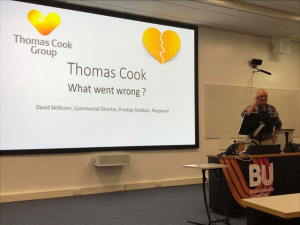
 With only a few days to go before we kick off this year’s
With only a few days to go before we kick off this year’s 








 In recognition of the important contribution that early career academics play in driving research for the future, we are delighted to continue the BU Academic Targeted Research scheme to attract and recruit talented individuals in targeted research areas. Following the successful recruitment of three new posts, we will employ up to another three new Senior Lecturers with significant postdoctoral expertise (or of comparable experience) with outstanding potential in alignment with one of three targeted research areas:
In recognition of the important contribution that early career academics play in driving research for the future, we are delighted to continue the BU Academic Targeted Research scheme to attract and recruit talented individuals in targeted research areas. Following the successful recruitment of three new posts, we will employ up to another three new Senior Lecturers with significant postdoctoral expertise (or of comparable experience) with outstanding potential in alignment with one of three targeted research areas: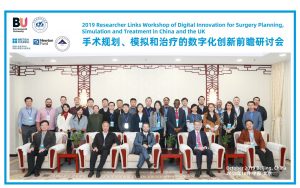

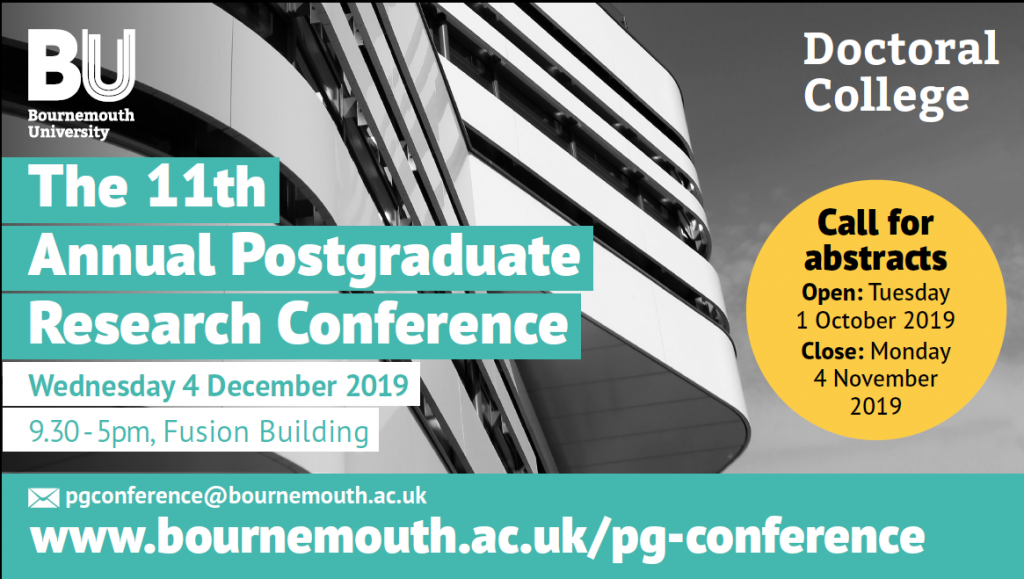
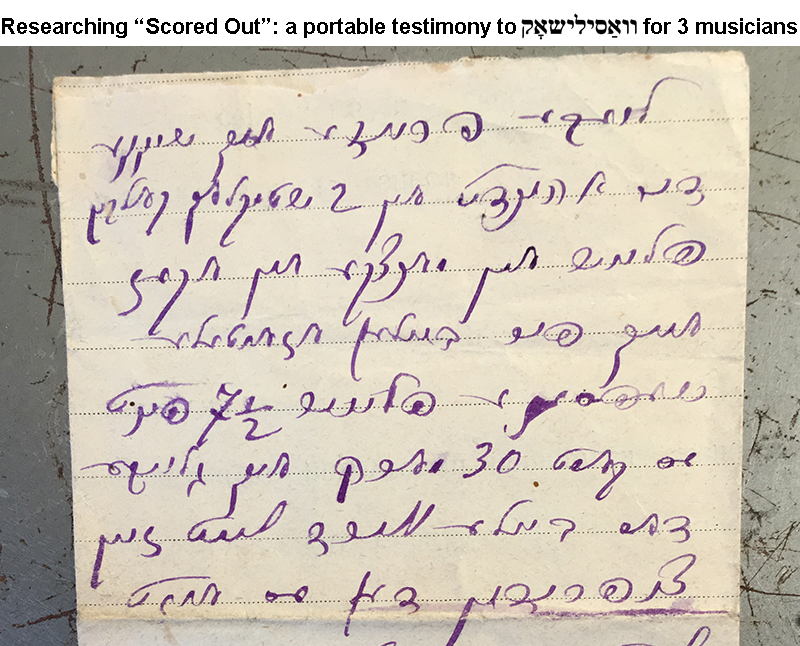

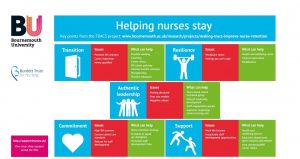
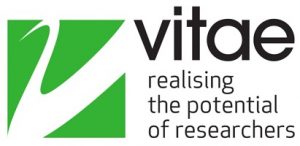

 With the aid of QR funding (Faculty of Management), I conducted field-research in Ubud, Indonesia in July 2019. I went into the field with two research questions, linked to poverty alleviation and sustainable community development. What is the impact of spiritual/wellness tourism on local people and communities in Ubud? What are the strategies that can help provide micro-entrepreneurship opportunities for the poor? I interviewed multiple stakeholders including a former Indonesian Minister of Tourism, a spiritual leader in Ubud, a representative of the Ubud home stay association, local yoga teachers and other private/public stakeholders. I also talked to a representative of a rural orphanage.
With the aid of QR funding (Faculty of Management), I conducted field-research in Ubud, Indonesia in July 2019. I went into the field with two research questions, linked to poverty alleviation and sustainable community development. What is the impact of spiritual/wellness tourism on local people and communities in Ubud? What are the strategies that can help provide micro-entrepreneurship opportunities for the poor? I interviewed multiple stakeholders including a former Indonesian Minister of Tourism, a spiritual leader in Ubud, a representative of the Ubud home stay association, local yoga teachers and other private/public stakeholders. I also talked to a representative of a rural orphanage.
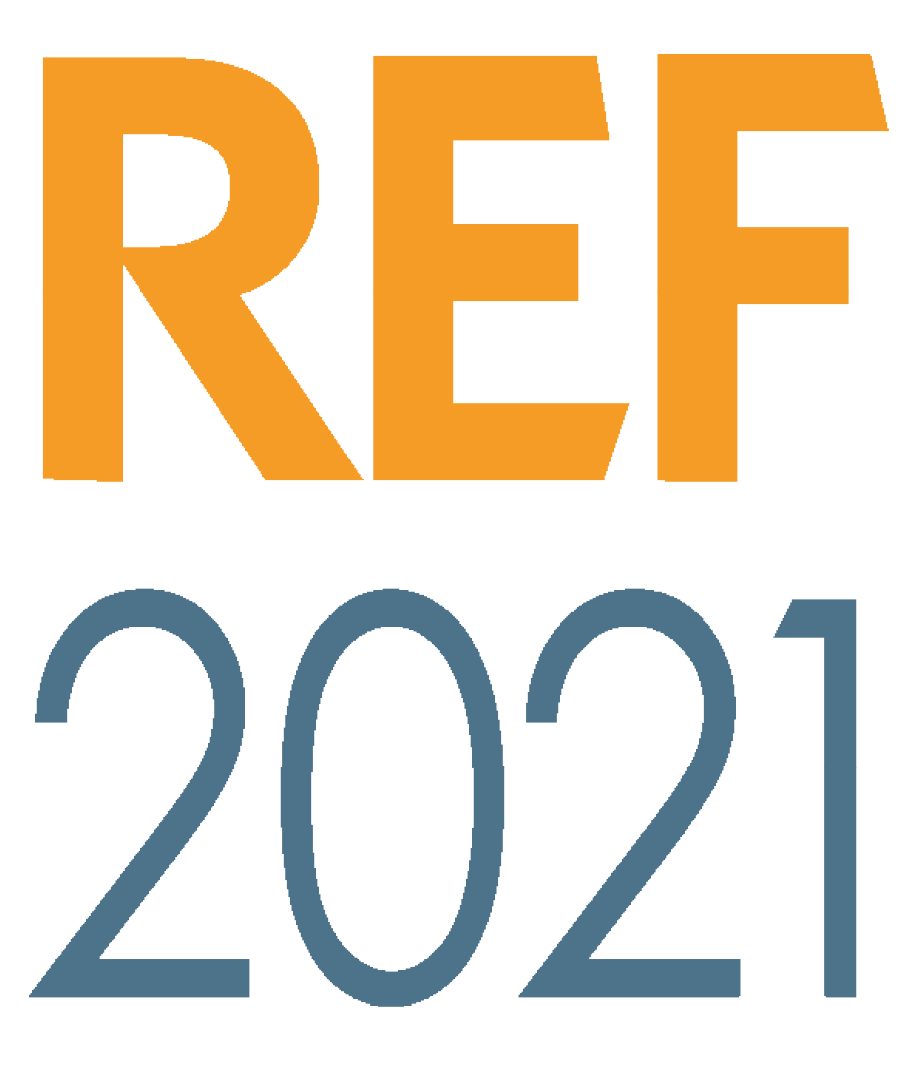
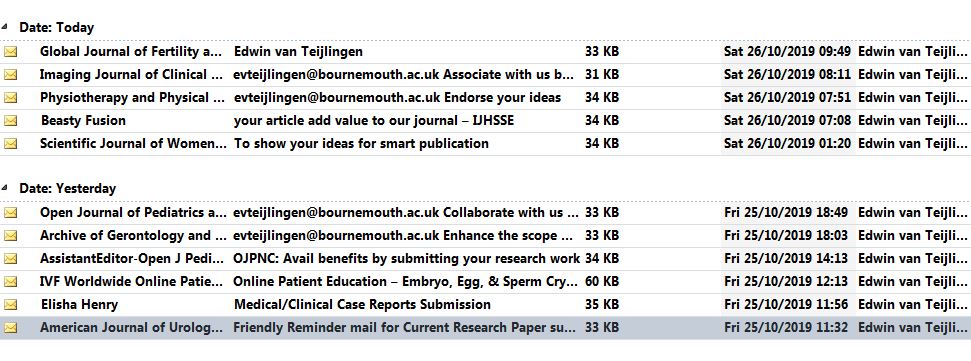











 From Sustainable Research to Sustainable Research Lives: Reflections from the SPROUT Network Event
From Sustainable Research to Sustainable Research Lives: Reflections from the SPROUT Network Event REF Code of Practice consultation is open!
REF Code of Practice consultation is open! BU Leads AI-Driven Work Package in EU Horizon SUSHEAS Project
BU Leads AI-Driven Work Package in EU Horizon SUSHEAS Project ECR Funding Open Call: Research Culture & Community Grant – Apply now
ECR Funding Open Call: Research Culture & Community Grant – Apply now ECR Funding Open Call: Research Culture & Community Grant – Application Deadline Friday 12 December
ECR Funding Open Call: Research Culture & Community Grant – Application Deadline Friday 12 December MSCA Postdoctoral Fellowships 2025 Call
MSCA Postdoctoral Fellowships 2025 Call ERC Advanced Grant 2025 Webinar
ERC Advanced Grant 2025 Webinar Update on UKRO services
Update on UKRO services European research project exploring use of ‘virtual twins’ to better manage metabolic associated fatty liver disease
European research project exploring use of ‘virtual twins’ to better manage metabolic associated fatty liver disease